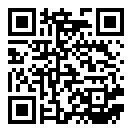Pages:
101-116
Receive Date: 2026/01/28
Accept Date: 2026/01/28
Abstract:
This study aimed to present a model for cultivating children’s thinking based on Islamic epistemology within the Philosophy for Children program. The qualitative method and content analysis were utilized in the research. Data collection instruments included systematic literature reviews and semi-structured interviews. To determine the validity of the questionnaire, content and construct validity were assessed, while Cronbach’s alpha and composite reliability were used to measure reliability. The results confirmed the instrument’s validity and reliability. Data analysis was conducted through thematic analysis using MAXQDA software, encompassing basic, organizing, and global themes. Findings showed that cultivating children’s thinking in P4C, grounded in Islamic epistemology, comprises 159 indicators, 32 components, and 7 dimensions including 1. Moral development of the child and understanding value-based issues, 2. Fostering rational, logical, and rational thinking, 3. Intuitive and philosophical perspectives, 4. Enhancing political and economic understanding 5. Advancing epistemological and ontological comprehension 6. Disciplining and educating the child, and 7. Understanding theology. The model also emphasizes creating an open environment for discussion and critique, encouraging questioning and deep thinking, presenting Islamic philosophical issues in simple language, promoting critical thinking and multifaceted understanding, and nurturing abstract thinking abilities.
چکیده و کلیدواژه فارسی (Persian)
Title :ارائه الگوی پرورش تفکر کودک بر مبنای معرفتشناسی اسلامی در برنامه آموزش فلسفه برای کودکان
Abstract:
این پژوهش با هدف ارائة الگوی پرورش تفکر کودک بر مبنای معرفتشناسی اسلامی در برنامة آموزش فلسفه برای کودکان انجام پذیرفت. روش پژوهش کیفی و بر حسب تحلیل محتوا بود. ابزار گردآوری داده، مرور سیستماتیک ادبیات و مصاحبة نیمهساختاریافته بود. بهمنظور تعیین روایی پرسشنامه از روایی محتوایی و سازه، و برای محاسبۀ پایایی نیز از ضریب آلفای کرونباخ و پایایی ترکیبی استفاده شد، که نتایج بیانگر روا و پایا بودن ابزار بود. روش تجزیه و تحلیل دادهها، تحلیل مضمون شامل مضامین پایه، سازماندهنده و فراگیر با نرمافزار مکس کیودا بود. یافتهها نشان دادند که پرورش تفکر کودک در آموزش فلسفه برای کودکان بر مبنای معرفتشناسی اسلامی شامل 159 شاخص، 32 مؤلفه و 7 بعدِ «اخلاقی شدن کودک و فهم مباحث ارزشی»، «ایجاد تفکر عقلی، استدلالی و منطقی»، «دیدگاه شهودی و فلسفی»، «ارتقای درک سیاسی و اقتصادی»، «ارتقای درک معرفتشناسی و هستیشناسی»، «تأدیب و تربیت کودک» و «درک خداشناسی» بود؛ همچنین شامل ایجاد فضای آزاد برای بحث و انتقاد، تشویق به پرسش و تفکر عمیق، ارائة مسائل فلسفة اسلامی به زبان ساده، ترغیب به تفکر انتقادی و درک چندگانه، و توجه به توسعة قدرت تفکر انتزاعی بود.
References:
- اعتصامی، حمیده و شفیعآبادی، عبدالله (1401). اثربخشی آموزش فلسفه برای کودکان بر رشد اخلاقی دانشآموزان پسر پایة ششم دبستان. فرهنگ مشاوره و رواندرمانی، 13(52)، 233ـ255.
- ایرانشاهی، مسلم، پیرانی، ذبیح، رضایی، محمدهاشم و سیفی، محمد (1396). اثربخشی آموزش فلسفهورزی کودکان بر اخلاق شهروندی و مؤلفههای آن در دانشآموزان دختر ابتدایی. فصلنامة علمی پژوهشی پژوهشهای اعتقادی ـ کلامی، 7(1)، 305ـ323.
- برهمن، میرم و خدابخشی صادقآبادی، فاطمه (1396). آموزش فلسفه برای کودکان. مجلة پیشرفتهای نوین در علوم رفتاری، 2(9)، 90ـ104.
- بهروزی نیک، سیدنورالدین و بهروزی نیک، سیدفخرالدین (1401). فلسفه برای کودکان و اخلاق». دستاوردهای نوین در مطالعات علوم انسانی، 52(5)، 83ـ101.
- قیصری رمضانیان، مژگان، معصومیفرد، مرجان، رضایی، صادق و محمودی، مهدی (1402). واکاوی و تبیین پرورش تفکر کودک در آموزش فلسفه برای کودکان بر مبنای معرفتشناسی اسلامی. قرآن و طب، 8(3)، 129ـ140.
- عنابستانی، فاطمه (1397). پرورش رشد و تعالی در محیطهای آموزشی. تهران: نشر فروغ سیمرغ.
- محمدی، عباس (1397). ارائة مدلی از برنامة آموزش فلسفه به کودکان بر اساس مبانی اسلامی. هشتمین همایش علمی پژوهشی علوم تربیتی و روانشناسی؛ آسیبهای اجتماعی و فرهنگی ایران. تهران.
- محمدیان، بنتالهدی و فرقدانی، آزاده (1397). اثربخشی آموزش فلسفه برای کودکان بر ارزیابی تعارض بین والدین و خودگردانی تحصیلی. نشریة تفکر و کودک، 9(1)، 72ـ53.
- مرعشی، سیدمنصور، صفایی مقدم، مسعود و خزامی، پروین (1389). بررسی تأثیر اجرای برنامۀ آموزش فلسفه برای کودکان بهروش اجتماع پژوهشی، بر رشد قضاوت اخلاقی دانشآموزان پایة پنجم ابتدایی شهر اهواز. نشریة تفکر و کودک، 1(1)، 83ـ102.
References:
- Işıklar, S. & Öztürk, Y. A. (2022). The effect of philosophy for children (P4C) curriculum on critical thinking through philosophical inquiry and problem solving skills. International Journal of Contemporary Educational Research journa, 9(1), 130-142.
- Lone, J. M. (2022). Philosophy for children. A companion to public philosophy journal, 14(3), 325–336.
- Termaat, A. (2023). Framing، classification، and conceptual linkages: What can interdisciplinary practice in small secondary schools contribute to the curriculum conversation?. The Curriculum Journal, 35(2),145-167.
Cite this article:
RIS
Mendeley
BibTeX
APA
MLA
HARVARD
VANCOUVER
APA | MLA | HARVARD | VANCOUVER
Gheisari ramezanian, Mozhgan, MasoomiFard, Marjan, Rezaei, Sadegh, Mahmuodi, Mahdi.(2026) Presenting a Model for Cultivating Children’s Thinking Based on Islamic Epistemology in the Philosophy for Children Program. Islam va Pazhuheshhaye Tarbiyati, 17(1), 101-116 https://doi.org/10.22034/eslampajoheshha.2024.5000869
APA | MLA | HARVARD | VANCOUVER
Mozhgan Gheisari ramezanian; Marjan MasoomiFard; Sadegh Rezaei; Mahdi Mahmuodi."Presenting a Model for Cultivating Children’s Thinking Based on Islamic Epistemology in the Philosophy for Children Program". Islam va Pazhuheshhaye Tarbiyati, 17, 1, 2026, 101-116
APA | MLA | HARVARD | VANCOUVER
Gheisari ramezanian, M, MasoomiFard, M, Rezaei, S, Mahmuodi, M.(2026) 'Presenting a Model for Cultivating Children’s Thinking Based on Islamic Epistemology in the Philosophy for Children Program', Islam va Pazhuheshhaye Tarbiyati, 17(1), pp. 101-116
APA | MLA | HARVARD | VANCOUVER
Gheisari ramezanian, M, MasoomiFard, M, Rezaei, S, Mahmuodi, M. Presenting a Model for Cultivating Children’s Thinking Based on Islamic Epistemology in the Philosophy for Children Program. Islam va Pazhuheshhaye Tarbiyati, 2026; 17(1): 101-116
 / Ph.D. in the Philosophy of Education, Payam-e Noor University, Tehran, Iran / mj.qeisari@gmail.com
/ Ph.D. in the Philosophy of Education, Payam-e Noor University, Tehran, Iran / mj.qeisari@gmail.com



